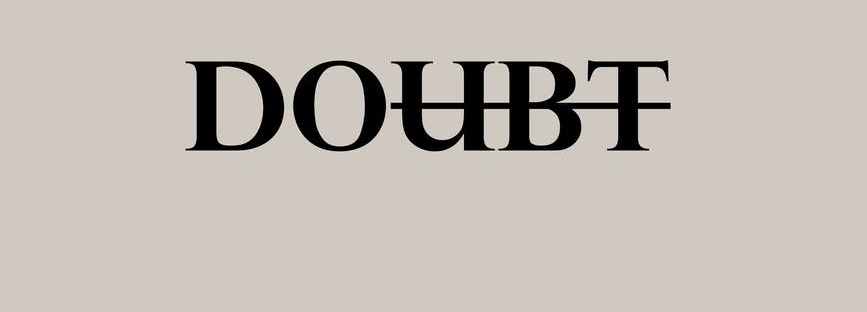In the books that I’ve read there’s often a chapter included that’s about procrastination. I believe the common thread or theme is that depression often comes when you feel stuck; and you feel stuck, because you keep putting off things that need to get done. In Brian Tracy’s book Eat That Frog! he points out, “Your ‘frog’ is your biggest, most important task, the one you are most likely to procrastinate on if you don’t do something about it now. It is also the one task that can have the greatest positive impact on your life and results at the moment.”
There’s a lot of truth to what he says. But if one thing could have such huge results, why do we procrastinate and remain stuck?
I like how Karen Scalf Linamen approaches this problem in her book Only Nuns Change Habits Overnight. She writes:
“I’ve struggled with procrastination for years. I’ve read books and articles on the subject. I’ve researched it on the Internet. But when I read the following words by Dr. Kevin P. Austin, psychologist and director of Student Counceling Services at the California Institute of Technology, I knew I was onto something. Austin wrote, ‘People procrastinate because they experience emotions they don’t want to feel when they attempt to do some things.’
“As soon as I read those words, something in my brain went, “Yes!” It’s true. I don’t procrastinate to avoid doing things–even unpleasant things. Instead, I procrastinate to avoid feeling unpleasant emotions, like my [fear of imperfection that causes] panic that whatever I’m about to attempt might not turn out all that great.”
Here she asks the reader a question.
“What are some of the unpleasant emotions that crop up?”
She includes herself when she says that we may feel:
- afraid
- helpless
- powerless
- overwhlemed
- controlled
- sad
- rebellious
- embarrassed
- discouraged
- anxious
- guilty
- disinterested
- resentful
- bored
- insecure
- exhausted
- ashamed
- inferior
Linamen uses examples in her book that show how friends of hers put off doing things, and lists specific feelings these friends are trying to avoid. However, the one that hits home for me is an example from her own life. Linamen writes:
“I once put off paying a parking ticket until the very last minute because every time I thought about finding the envelope and stamps necessary to mail in my payment, I felt overwhelmed by the lack of organization in my home. By procrastinatin, I avoided feeling discouraged and defeated by my cluttered work space.”
It’s funny. Linamen writes about how procrastinators are often given advice about time management. However, for most of us it’s argueable that this is NOT the issue! It is indeed the negative emotions that we are avoiding.
“We don’t procrastinate because we’re short on time. We procrastinate because we’re short on better ways to manage the unpleasant emotions we’ve attched to certain tasks.”
I couldn’t agree more. When I read this section of her book, something definately hit home for me. I can do tasks. I can make lists, and cross out things that I need to do. And, yes, there is often more than enough time to do the things I want to do. However, I feel that maybe one or two more stories from Linamen’s book could be better examples of the “frogs” that we are talking about. For example, this one:
A friend of hers “put off dieting because the thought of sticking with a diet plan made her feel controlled and restricted, feelings she could avoid by procrastinating.”
If this friend eats her “frog,” there’s a good chance she will be much healthier physically. She could potentially lower her cholesterol, lower the risk of diabetes, and a whole slew of other problems. She’ll have more energy. She’ll be putting less weight and strain on her joints. The list goes on. However, I think it’s important to have friends in her corner that believe in her so that they can give her the encouragement she needs. This is a topic I might cover in another post.
Another potentially life-changing “frog” is this one:
“A colleague has been putting off an important phone call he needs to make that will help unravel the financial knot he’s tied up in. With his procrastination, is he consciously trying to avoid the benefits of greater freedom in his life? Not at all. He longs for resolution. His procrastination is orchestrated to help him avoid unpleasant emotions–embarrassment and failure–he feels when he merely thinks about the problem at hand.”
We could spend time speculating about the nature of his phone call. Was he declaring bankruptcy or simply calling his financial adviser? Who knows. The point is that this is the one thing that could make his life a lot easier.
Much like those in the examples above, we need to take a good look at what’s holding us back. The main idea is to identify these emotions, and overcome them in some way. Linamen sugguests finding a friend or loved one, telling them what you plan to do, and have that person check in on you from time to time.
I’m not perfect. I’m still muddling through life myself. But I find these suggestions and insights to be really helpful.
For further reading you might try Only Nuns Change Habits Overnight: 52 Amazing Ways to Master the Art of Personal Change by Karen Scalf Linamen. She is funny and her books read as if she is your funny and quirky yet insightful big sister or friend. If you want a more straightforward serious approach from someone in the business world, try Eat That Frog! 21 Great Ways to Stop Procrastinating and Get More Done in Less Time by Brian Tracy. These books are a little old, so you might have more luck finding them on the Internet than in your local book store. However, both are easy to read, and definately struck home for me.
I hope this helps you learn something about yourself. I already have a few ideas for new posts. So, stay tuned!
Best of luck,
Vanessa


